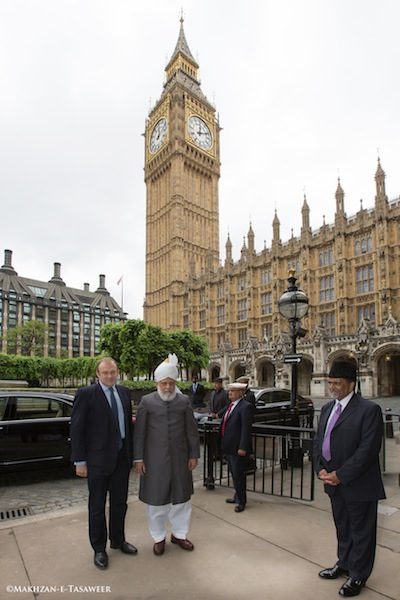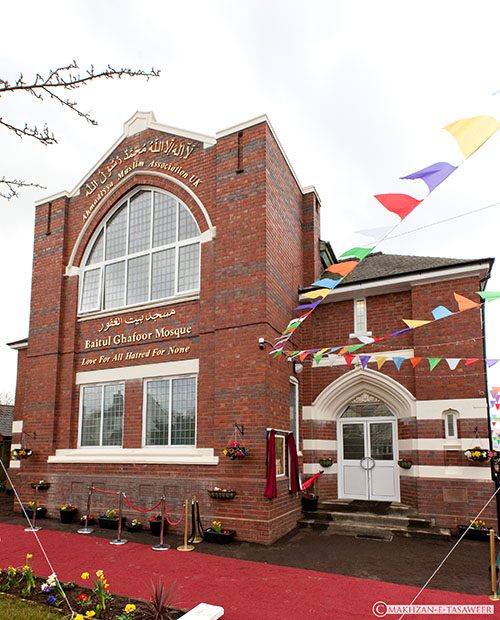Should Britain Bring Back Christian Values?
The United Kingdom has its roots deeply embedded within the Christian tradition. The Queen is the Head of the Church of England, a title dating back to King Henry VIII’s struggle to separate the Church of England from the Roman Catholic Church. Whilst King Henry had personal reasons for wanting this separation from Rome (he wanted to divorce his wife Catherine in order to marry Anne Boleyn) he was also concerned about the power of the Catholic Church over Britain. The Act of Supremacy effectively declared the UK as a sovereign state with the King as Head of both the country and the Church giving the monarch the power to redress, reform, or amend all errors, which would previously have been dealt with by another spiritual authority.
In a speech in December 2011 marking the 400th anniversary of the King James Bible, UK Prime Minister David Cameron spoke of the Christian values which he said had shaped the British way of life, arguing that they should be more prevalent in British life and politics:
“We get the irrepressible foundation for equality and human rights…a foundation that has seen the Bible at the forefront of the emergence of democracy, the abolition of slavery…and the emancipation of women – even if not every church has always got the point!
Responsibility, hard work, charity, compassion, humility, self-sacrifice, love…pride in working for the common good and honouring the social obligations we have to one another, to our families and our communities…these are the values we treasure. Yes, they are Christian values.”
Indeed, these are praiseworthy values that serve to create the largely cohesive and coherent society that the UK is. Most commendably of all, while the Monarch is the Head of the Church of England, there is complete freedom of worship, for all. However, Prime Minister Cameron’s point that the Bible has been at the forefront of the establishment of values is open to contention. For instance British women only obtained the right to vote in 1928. University education was not possible for them until the mid nineteenth century and then only at very few places. It is hard therefore to see what role the Bible played in bringing about the emancipation of British women. In contrast Islam guaranteed women the right to education and inheritance nearly fifteen hundred years ago. Britain’s role in international affairs has also, at times, been at odds with certain Biblical injunctions. Operation ‘Desert Storm’ does seem to fly in the face of Jesus’ teaching ‘If someone strikes you on the right cheek, turn to him the other also.’ Could this be an instance of political expediency overriding Biblical values! Prime Minister Cameron went on to say:
“I have never really understood the argument some people make about the Church not getting involved in politics. To me, Christianity, faith, religion, the Church and the Bible are all inherently involved in politics because so many political questions are moral questions.”
Religion can certainly provide a moral compass to inform policy makers. Because of the Islamic injunction to care for the less needy, Hadhrat Umar(ra), the Second Khalifa or Successor to the Prophet Muhammad(saw), instituted a system of child welfare to support mothers with newborn babies. Much of the social reform programmes carried out in the Britain by the Quaker movement comes from their interpretations of Biblical teachings.
But should religious leaders involve themselves in politics? We have seen in many Muslims countries the danger of allowing religious leaders to determine political agendas such as in Pakistan, Indonesia and Bangladesh. The influence of the ‘mullah’ has actually led to an eradication of basic human rights through the introduction of legislation such as blasphemy laws which are not really based on true Islamic Law at all. By the same token, when politicians have involved themselves in religious affairs; that too has lead to the suppression of human rights. In the former Soviet Union, it was not possible for believers to practice their faith openly. In Europe and more latterly Canada, we are witnessing the erosion of the rights of Muslim women through the introduction of legislation banning burqas.
Islam has always advocated the separation of religion from government. In last month’s The Review of Religions, this issue was discussed succinctly (‘Islam, Democracy and Khilafat: A Response to the Economist’, December 2011). Briefly, the basic requirement for any government is to operate on the principle of absolute justice. However religion plays no part in the administration of justice which must be done regardless of faith. Islam guarantees religious freedom. Hadhrat Khalifatul Masih V(aba), Head of the worldwide Ahmadiyya Muslim community has stressed:
“Allah has said that a requirement for a just government is that it should separate religious maters from matters of State, and every citizen should be afforded his due rights. This principle is absolute and without exception, to the extent that you must act justly even with those people who have displayed hatred towards you, and who due to this opposition have persecuted you repeatedly in every possible way.”1
Our Prime Minister might find it informative to reflect on Islamic injunctions concerning the relationship between politics and religion.
Sarah Waseem has a Doctorate in Psychology and has been on the Editorial Board of The Review of Religions for over 15 years.
Endnotes
- Address on 25th June 2011, ‘Is Islam for Germany?’ (See July 2011 Edition of The Review of Religions)




Add Comment